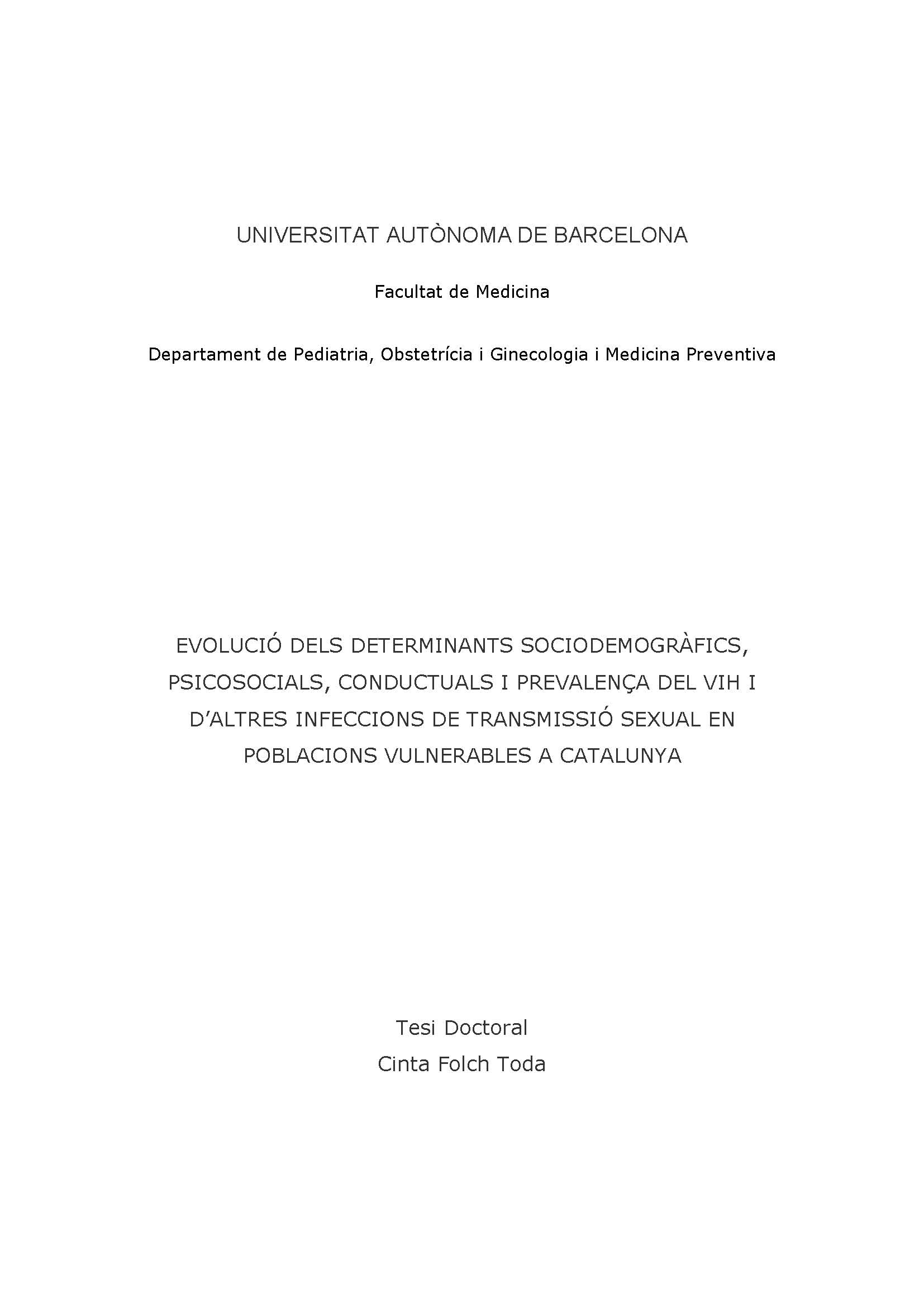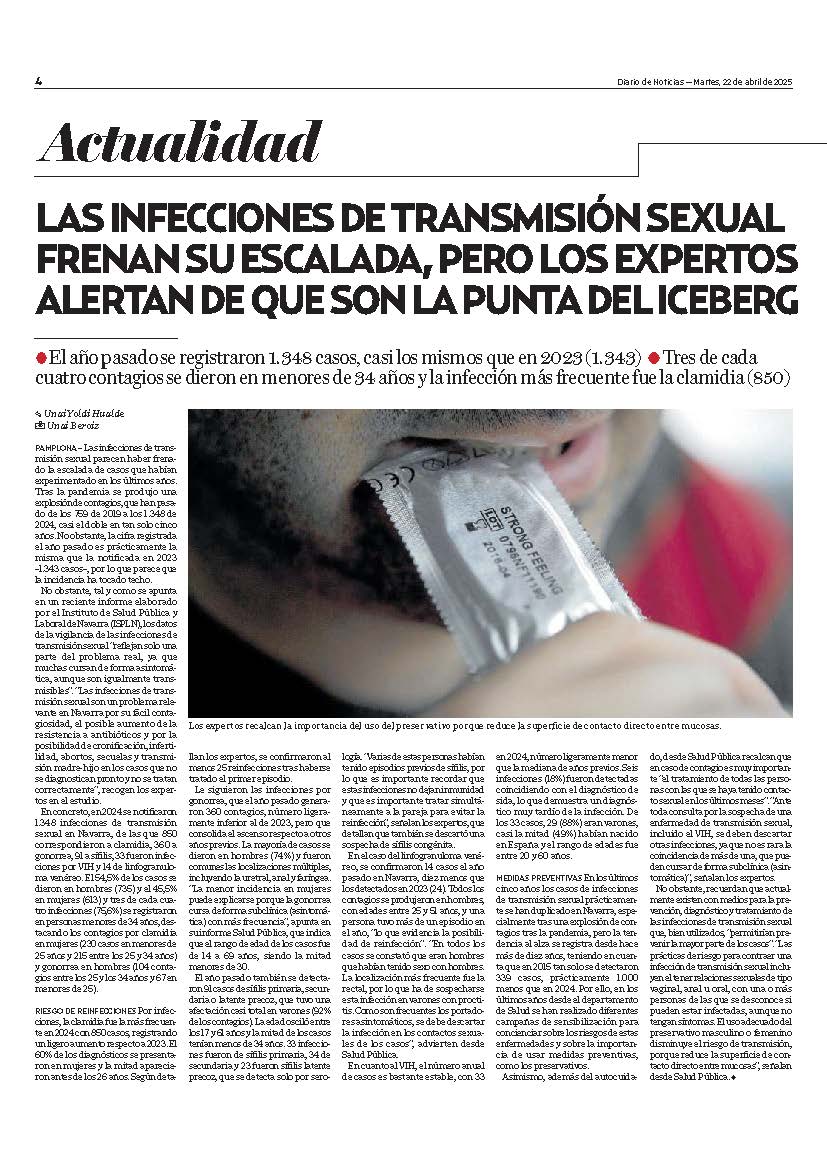Resumen
This thesis aims to review the existing knowledge regarding the bio-behavioral surveillance surveys on HIV and sexually transmitted infections (STI) in vulnerable populations, as well as identifying the main determinants of these infections and associated risk behaviors in men who have sex with men (MSM) and injecting drug users (IDU). The thesis brings together five articles based on data collected from biobehavioral surveillance studies conducted by the CEEISCAT in Catalonia in these populations since 1993. First, an increasing trend in the prevalence of HIV and associated risk behaviors was found in MSM in Catalonia during 1995-2006. The use of alcohol and drugs before and/or during sex is a risk behavior to take into consideration among MSM, and as observed in the second publication, there was clearly an association between alcohol and drug use and unprotected sex. The third study confirms the high prevalence of HIV and HCV among IDU in Catalonia; unlike STI prevalence data that remain similar to the general population (fourth article). Despite the low prevalence of STI observed among this population, the low condom use reported means that a sexual risk of HIV/STI transmission exists in this group. Finally, the fifth article characterizes the injectors that, despite the widespread use of harm reduction programs in Catalonia, still keeping risk practices related to injection, in particular those who inject drugs frequently as well as cocaine injectors. Data from biobehavioral surveys in Catalonia have been incorporated in different preventive interventions designed to reduce HIV and STI transmission in vulnerable populations. (Extret del document)






